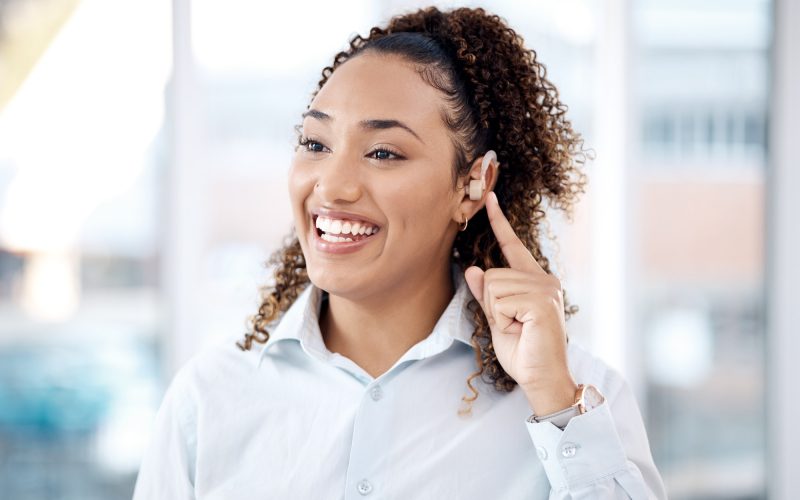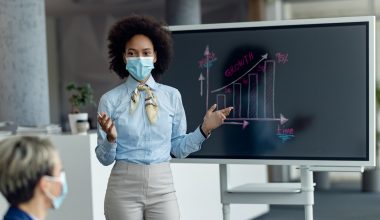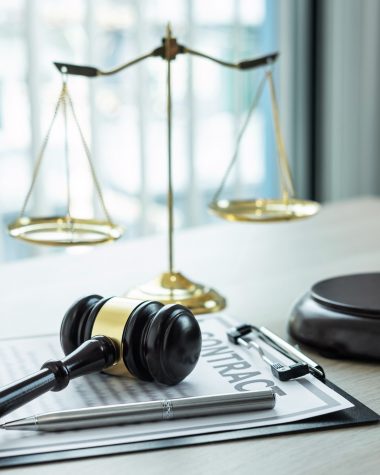Embracing Challenges: The Decision to Pursue a Career in Law
The Call of the Gavel
Who in their right mind willingly chooses to spend their days buried under piles of legal briefs and drowning in a sea of legal jargon? Well, apparently, I do. Despite facing countless challenges, I made the bold decision to pursue a career in law, and let me tell you, it’s been quite the journey.
The Siren Song of Justice
For as long as I can remember, I’ve always had an insatiable thirst for justice. Maybe it was all those episodes of “Law & Order” I binge-watched as a kid, or perhaps it was my innate desire to make a positive impact in the world. Whatever the reason, the legal field called out to me like a siren, luring me into its depths with promises of righting wrongs and fighting for what’s fair.
Of course, this decision didn’t come without its fair share of doubts and naysayers. As a deaf individual, the prospect of navigating a profession so heavily reliant on communication seemed like an uphill battle. But that’s the thing about challenges – they only make victory taste so much sweeter.
Conquering the Communication Barrier
One of the biggest hurdles I faced was finding a way to effectively communicate in a field that thrives on quick-thinking verbal exchanges. From courtroom battles to intensive negotiations, communication is at the core of everything lawyers do. And yet, here I was, armed with a language that was visual, not auditory.
But where there’s a will, there’s a way. Armed with my trusty interpreter and a determination that could rival the most tenacious litigator, I set out to conquer the communication barrier. It wasn’t always easy – there were times when misunderstandings occurred or conversations became convoluted – but I refused to let my deafness define my capabilities.
Instead, I saw it as an opportunity to bring a unique perspective to the table. I realized that my experience as a deaf individual could enhance my understanding of non-verbal cues, body language, and visual evidence. Through careful observation and an unwavering dedication to honing my skills, I transformed what some saw as a limitation into a powerful asset.
Breaking Down Stereotypes
Let’s face it – the legal profession has a reputation for being cutthroat, filled with slick-talking attorneys who will stop at nothing to win. As a deaf person entering this world, I had to confront not only the challenges of my disability but also the stereotypes associated with lawyers in general.
I was determined to prove that being deaf didn’t make me any less capable or passionate about my chosen career path. I worked tirelessly to break down barriers and change perceptions, advocating for inclusivity and accessibility within the legal community. It wasn’t just about me anymore – it was about creating a more equitable and diverse field for future generations of deaf individuals who may dream of pursuing law.
Along the way, I discovered a supportive network of mentors, colleagues, and organizations dedicated to championing the rights of individuals with disabilities in the legal profession. Together, we shattered stereotypes and paved the way for a more inclusive legal landscape.
In Conclusion,
The decision to pursue a career in law was by no means an easy one, especially as a deaf individual. But through perseverance, determination, and a healthy dose of humor, I embraced the challenges head-on and carved out my own path in this dynamic field. By pushing boundaries and overcoming obstacles, I hope to inspire others to break through their own barriers, whatever they may be. After all, the legal world needs diverse voices and fresh perspectives to truly serve justice for all.
Navigating Communication: Overcoming Barriers in Legal Education
Navigating Communication: Breaking Through the Sound Barrier
Being a deaf professional in the legal field comes with its own set of challenges, and one of the biggest hurdles to overcome is communication. As someone who relies on visual cues and written language, navigating conversations, meetings, and even classroom discussions can sometimes feel like traversing a treacherous path. However, with a little creativity and determination, it’s possible to break through the sound barrier and find effective ways to communicate with colleagues, clients, and professors.
Reading Lips? Not Quite!
When it comes to the art of lip-reading, it may seem like a magical skill that all deaf individuals possess. But let me burst that bubble right away – lip-reading is not as foolproof as it may appear. While some deaf individuals have honed their lip-reading abilities to near perfection, it’s important to note that only about 30% of spoken English sounds are visible on the lips. So, no, we can’t always read your lips accurately, especially when you mumble or speak too fast. But fear not, there are other means of communication that can save the day!
The Sign Language Connection
Sign language, a visual language independent of spoken languages, is a lifeline for many deaf individuals. For those fluent in American Sign Language (ASL) or other sign languages, using interpreters or communicating directly in sign language can bridge the communication gap seamlessly. But unfortunately, not everyone is well-versed in sign language, and finding a qualified interpreter isn’t always a walk in the park. Thus, alternative methods must be explored to ensure effective communication.
Let Technology Speak for Itself
In today’s digital age, technology has become an invaluable tool for breaking communication barriers. For deaf professionals in the legal field, technology can be a game-changer. Real-time speech-to-text services, such as CART (Communication Access Realtime Translation) or voice recognition software, can transcribe spoken words into text and display them on a screen. This not only helps in understanding conversations but also allows for participation and engagement during meetings or classroom discussions. Additionally, video conferencing platforms that offer captioning or live transcription features can be a boon for deaf individuals, enabling them to follow along with presentations and discussions effortlessly.
So, you may wonder, what about phone calls? Well, while traditional phone calls may pose a challenge, we’re not completely cut off from telecommunication. Thanks to video relay services (VRS), which provide sign language interpreters via video calls, deaf professionals can make phone calls with ease. These services allow sign language users to communicate directly with hearing individuals, bridging the gap between spoken and signed languages.
The Written Word as Our Ally
In a legal setting where precise communication is crucial, the written word becomes our trusted ally. Email, instant messaging, and good old-fashioned pen and paper are all tools that enable effective communication between deaf professionals and their colleagues, clients, and professors. Written communication eliminates misunderstandings caused by misinterpretation or incomplete lip-reading, ensuring that information is accurate and comprehensive. Plus, it offers the added benefit of providing a written record that can be referenced later, minimizing the risk of miscommunication or forgotten details.
In the classroom, professors can also play a crucial role in fostering an inclusive environment. Providing lecture notes, PowerPoint slides, or class materials in advance gives deaf students an opportunity to review the content before class, making it easier to follow along during lectures and engage in discussions more effectively. Additionally, creating a forum for open dialogue regarding communication preferences and strategies can go a long way in ensuring that everyone’s needs are met.
Breaking Barriers, Building Bridges
While communication barriers exist within the legal field, it’s essential to recognize that they can be overcome. By embracing technological advancements, utilizing sign language interpretation services, and prioritizing clear written communication, we can bridge the divide and create an inclusive environment for all professionals in the legal field. By breaking through the sound barrier, we not only empower deaf individuals but also enrich the legal profession as a whole, fostering diversity and promoting equal access for all. So, let’s continue to build bridges and break down these barriers, one conversation at a time.
The Power of Adaptability: Thriving in the Legal Profession
The Power of Adaptability: Embracing Change in the Legal World
Being a deaf professional in the legal field certainly comes with its own unique set of challenges. Communication barriers, misunderstandings, and misconceptions can often pose hurdles along the way. But as with any profession, the key to success lies in the ability to adapt and thrive despite these obstacles.
Innovation: Finding New Ways to Communicate
In the legal world, communication is paramount. From client consultations to courtroom arguments, effective communication is essential for building trust, presenting arguments, and achieving positive outcomes. As a deaf professional, I have been forced to think outside the box and find innovative ways to overcome these communication barriers.
One of the most empowering tools in my arsenal has been technology. With advancements in speech-to-text software, video conferencing, and instant messaging platforms, I have been able to bridge the gap between myself and my colleagues, clients, and opposing counsel. Utilizing these tools not only allows me to communicate more effectively, but it also helps educate others about the capabilities of individuals with hearing disabilities, breaking down misconceptions along the way.
Additionally, I have found that establishing open and honest lines of communication with those around me is crucial. By proactively discussing my needs and preferences, I have been able to create an atmosphere of understanding and cooperation. This willingness to adapt and educate others on the unique communication methods required for effective collaboration has enabled me to build strong relationships built on trust and respect.
Flexibility: Embracing Different Roles in the Legal Profession
As a deaf professional, the ability to adapt extends beyond just communication strategies. It also involves being flexible and embracing different roles within the legal profession. While some may view these challenges as limitations, I have come to see them as opportunities for growth and development.
One such opportunity lies in the realm of legal research. Due to my reliance on visual information and textual analysis, I have honed my skills in conducting thorough legal research. This expertise has allowed me to excel in this particular aspect of the legal profession, often surpassing my peers who do not face the same communication challenges. By leveraging my unique perspective and strengths, I have been able to carve out a niche for myself and provide valuable insights to my colleagues and clients.
Furthermore, as a deaf professional, I have recognized the importance of being adaptable when it comes to courtroom settings. While traditional methods of oral arguments may not be feasible, I have learned to navigate through alternative means, such as written submissions or sign language interpreters. This adaptability showcases my dedication to delivering effective representation while also challenging preconceived notions about the capabilities of deaf individuals in the legal field.
Resilience: Overcoming Adversity
In any professional journey, adversity is bound to arise. However, as a deaf professional in the legal field, the overcoming of obstacles becomes an integral part of the daily routine. To thrive in this demanding profession, resilience is a non-negotiable trait.
When faced with adversity, I have learned to view every challenge as an opportunity for personal and professional growth. Rather than allowing setbacks to hinder progress, I have adopted a mindset that embraces these hurdles as chances to learn and improve. This resilience has fueled my determination to succeed, proving time and again that deaf professionals are capable of excelling in the legal world.
Moreover, I have found empowerment in connecting with other deaf professionals who have also achieved success within the legal field. Mentoring and being mentored by others who face similar barriers has provided invaluable support and guidance. Through this community, I have been reminded that the power of adaptability extends beyond individual achievements—it is a collective strength that inspires others to break down barriers and pursue their dreams.
In conclusion, the power of adaptability lies at the heart of thriving in the legal profession as a deaf professional. By embracing innovation, being flexible, and maintaining resilience, we can overcome communication challenges, excel in our roles, and inspire others to follow suit. As the legal landscape evolves, so must we, constantly finding new ways to break down barriers and prove that success knows no limitations.
Advocacy beyond the Courtroom: Making an Impact as a Deaf Lawyer
Amplifying Our Voices: Advocacy in the Community
As a deaf lawyer, my journey extends far beyond the courtroom. While representing clients and arguing cases are important aspects of my work, I also strive to make a broader impact through advocacy in the community. By leveraging my skills and experiences, I aim to raise awareness, challenge misconceptions, and promote inclusivity for the deaf and hard-of-hearing community.
One way I engage in advocacy is by participating in public speaking engagements. Whether it’s giving presentations at schools, universities, or community events, I seize every opportunity to share my story and educate others about the challenges faced by individuals with hearing impairments. I use these platforms to shed light on the importance of accessibility, both in the legal profession and in society as a whole. Through these speaking engagements, I hope to inspire young deaf individuals to pursue their dreams, reaffirm their worth, and demonstrate that nothing is beyond their reach.
Additionally, I actively collaborate with organizations and nonprofits that work towards promoting the rights and well-being of the deaf community. By joining forces with these groups, I can contribute my legal expertise and help shape policies that address the specific needs of individuals with hearing impairments. Together, we advocate for changes in legislation, accessibility guidelines, and workplace accommodations to ensure equal opportunities for all. Through collective action, we strive to dismantle barriers and create a more inclusive society.
Challenging Stereotypes: Breaking Down Barriers
Beyond public speaking and collaboration, another critical aspect of advocacy lies in challenging stereotypes that often surround the deaf community. By debunking misconceptions and breaking down barriers, I aim to pave the way for inclusion and equal treatment in all aspects of life, including the legal field.
One common misconception is that being deaf hinders one’s ability to effectively communicate. However, as a deaf lawyer, I have proven time and again that communication barriers can be overcome. Through the use of sign language interpreters, assistive technologies, and various accommodations, I ensure effective communication with clients, colleagues, and court personnel. By showcasing the possibilities and capabilities of deaf professionals, we challenge prevailing stereotypes and demonstrate that deafness should never be seen as a limitation.
Moreover, it is crucial to advocate for the availability of accessible resources within the legal system. This includes ensuring the provision of qualified sign language interpreters, captioning services, and other forms of communication support during legal proceedings. By advocating for these accommodations, we strive for equal access to justice for all individuals, regardless of their hearing abilities. Breaking down these barriers not only benefits deaf lawyers but also creates a more inclusive legal system that serves the entire community.
Changing the Narrative: Empowering the Next Generation
In my advocacy efforts, empowering the next generation of deaf individuals plays a central role. By sharing my experiences, providing guidance, and serving as a role model, I hope to inspire and encourage young deaf individuals to pursue careers in law and other professions. It is essential to demonstrate that their dreams are valid and attainable, despite any obstacles they may face.
Through mentorship programs and outreach initiatives, I actively engage with aspiring deaf lawyers and students, offering support and advice tailored to their unique circumstances. I highlight the importance of self-advocacy, emphasizing the need to assert their rights and demand necessary accommodations to thrive in their chosen field. By guiding and nurturing these future professionals, we can foster a new generation of deaf lawyers who will continue to break barriers and create positive change.
In conclusion, my role as a deaf lawyer extends beyond the courtroom, encompassing advocacy efforts that aim to make a lasting impact on the deaf community. Through public speaking, collaboration with organizations, challenging stereotypes, and empowering the next generation, I strive to amplify our voices, break down barriers, and promote inclusivity. By embracing these advocacy initiatives, we can transform the legal field into a more accessible and equitable space for all individuals, regardless of their hearing abilities.
Inspiring Future Generations: Paving the Way for Deaf Professionals
Inspiring the Next Generation
As a deaf professional in the legal field, I understand the importance of inspiring future generations of deaf individuals to pursue their dreams and break down barriers. Throughout my own journey, I have encountered countless obstacles, but I have also discovered incredible opportunities that have paved the way for other deaf professionals to follow. It is my firm belief that by sharing my experiences and offering guidance, we can create a more inclusive and diverse workforce for generations to come.
Paving the Way: Challenges and Opportunities
Breaking into any professional field can be daunting, but being deaf brings its own unique set of challenges. From miscommunication to inaccessible environments, the barriers seem endless at times. However, I have learned that these roadblocks can serve as stepping stones to success. By navigating the challenges head-on and finding creative solutions, I have not only advanced my own career but also opened doors for other aspiring deaf professionals.
One of the greatest challenges for deaf individuals entering the legal field is communication. In a profession heavily reliant on oral and written language, it can be overwhelming to ensure effective communication in all aspects of our work. However, advancements in technology, such as video relay services and captioning services, have made significant strides in bridging this gap. By embracing these tools and advocating for accessible communication, we can level the playing field for deaf professionals and create a more inclusive legal community.
Another major opportunity that has emerged in recent years is the growing recognition of the value that diversity brings to the workplace. Many organizations and firms are actively seeking to build diverse teams, recognizing that diverse perspectives lead to more innovative and well-rounded solutions. As deaf professionals, we bring a unique perspective and lived experience that can enrich the legal field. By showcasing our abilities and advocating for our inclusion, we can help reshape the perception of deafness and break down barriers.
Empowering Deaf Professionals: Mentorship and Support
Mentorship and support play a crucial role in inspiring and empowering deaf professionals. I have been fortunate to have mentors who have not only believed in my abilities but also provided guidance and support throughout my journey. Their mentorship has pushed me to aim higher, overcome obstacles, and forge a path for others.
It is essential for deaf professionals to connect with mentors, both within and outside their field, who can provide invaluable insights and advice. By seeking out these role models, we can gain valuable knowledge and perspectives that will help us navigate the challenges and make significant strides in our careers. It is equally important for deaf professionals to become mentors themselves, passing on their knowledge and experiences to the next generation. Through mentorship, we can create a supportive network that fosters growth and success for all.
In addition to mentorship, organizations and institutions must also play a role in supporting deaf professionals. By implementing inclusive policies and accommodations, they can create an environment where deaf individuals can thrive. This includes ensuring accessibility in all aspects of the workplace, from communication to physical spaces. Investing in deaf professionals by providing training and resources tailored to their unique needs is also crucial in fostering their professional growth and development.
In conclusion, inspiring future generations of deaf professionals is a shared responsibility. Each of us has the power to break down barriers, advocate for accessibility, and empower those who come after us. By sharing our experiences, embracing technology, and forging meaningful connections, we can pave the way for a more inclusive and diverse legal field. Together, let us inspire, mentor, and support the next generation of deaf professionals as they embark on their own journeys towards success.








